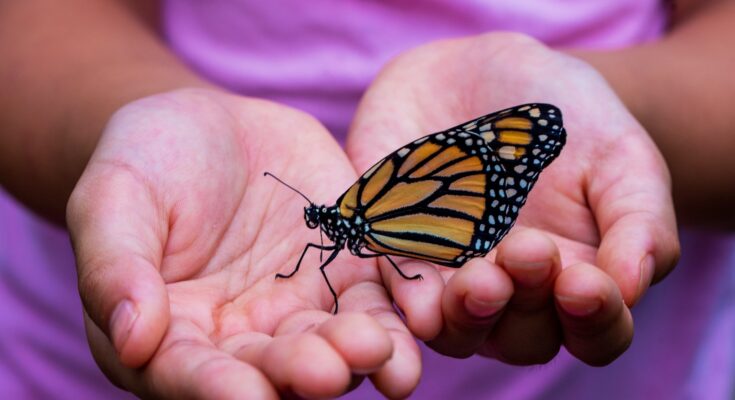The experiences that we have as children can affect us in both negative and positive ways far into adulthood, but childhood trauma does not have to define who we are for the rest of our lives. For many people, the most impactful part of their spiritual journey is the deeply personal process of connecting with and healing their inner child. It is difficult to confront the pain that we carry from our childhoods, and many people prefer to push the memories and feelings down to the recesses of their minds. In this blog post, we delve deep into how to heal childhood trauma spiritually and why you should get started as soon as possible to transform your life in positive ways.
Why Healing Your Inner Child May Be the Most Important Thing That You Ever Do
Children have little to no control over their lives. Every aspect of a child’s reality is decided for them by adults. This leads to temper tantrums over bedtimes and candy, as children try desperately to express their displeasure with the lack of control they have over their lives. Adults with childhood trauma may still feel as if they are not in control of their life and seek ways, often negative, to reclaim that feeling of control that they are missing.
“When our inner child is not nurtured and nourished, our minds gradually close to new ideas, unprofitable commitments, and the surprises of the spirit.”
― Brennan Manning
When the adults that were supposed to protect you as a child are the same ones that hurt you, that pain can stick with you. Even when we are not consciously aware of it, childhood trauma can plant seeds of negative feelings deep in our subconscious minds. These seeds of trauma grow into negative habits and behaviors as we mature into adults. Repressed childhood trauma often manifests physically through chronic illnesses and tumultuous personal relationships.
How Healing Childhood Trauma Spiritually Can Free You From Chronic Illness
In the book, The Body Keeps the Score: Brain, Mind, and Body in the Healing of Trauma by Bessel van der Kolk the author explores the science-backed concept that repressed trauma is stored in the body and can lead to the development of debilitating chronic illnesses.
“As long as you keep secrets and suppress information, you are fundamentally at war with yourself…The critical issue is allowing yourself to know what you know. That takes an enormous amount of courage.”
― Bessel A. van der Kolk
During traumatic events, the brain and the body can form a disconnect to handle the pain of the trauma. It is a survival mechanism that the human brain kicks into gear under severe stress. This disconnect between the brain and body can lead to a severely dysregulated nervous system that is in constant pain.
Chronic stomach pain, endometriosis pain, and migraines have all been associated with the effects of repressed trauma. A study revealed that women who had endured severe or long-term abuse were 79% more likely to develop endometriosis, a painful condition that affects the female reproductive system, than women who had not been abused.
How Healing Childhood Trauma Spiritually Can Change Your Life
A dark fact about childhood trauma is that when it is repressed, the inner child “acts out”. For most people, this manifests as reliving the past trauma through subconsciously seeking out relationships and situations that resonate with the trauma. Adults with childhood trauma are often subconsciously attracted to romantic partners that are reminiscent of abusive authority figures from their childhood.
People with a hurt inner child often put themselves in risky situations to repress the previous trauma with…more trauma. This is related to the dysregulation of the nervous system as the brain constantly seeks the “flight or fight” state of being. Adults with unhealed childhood trauma may find themselves constantly engaging in conflict and/or running away from conflict, all while feeling powerless in changing their reality.
The first step to breaking out of the cycle of retraumatizing yourself is to finally stop running from your inner child and confront the pain that you’re avoiding head-on while in a safe environment to do so. All past and future versions of yourself exist simultaneously. Your inner child is still with you and longing for you to give it the attention, love, and care that you lacked from adults as a child. When your present self becomes the adult that you needed as a child for your inner child, you take another step towards becoming the highest possible version of yourself.
“The child is in me still and sometimes not so still.”
― Fred Rogers
In another reality, your inner child and your higher self are already living in perfect harmony, and they are excited for you to join them in a world where your childhood trauma is no longer stunting your progress, joy, and peace in life.
Tips for How to Heal Childhood Trauma Spiritually
It is my sincerest hope that these tips for how to heal childhood trauma spiritually are useful to you in your journey towards overcoming obstacles in your life. The first step to healing is opening yourself up to the possibility that healing is possible.
1. Forgive Yourself for Things You Could Not Control
What happened to you as a child was not your fault. The adults in your life were supposed to protect you, provide for you, and guide you. You are not to blame for your childhood trauma. Forgive yourself for things that you could not control and were not your responsibility. You were a child.
It is never too late to start your healing journey, and there is no “right time”. The only time is right now. (It is important to make sure that you are in a safe environment to process your childhood trauma before opening the proverbial flood gates.)
Childhood trauma does not have to be severe physical abuse. Some people may feel guilty about the fact that their childhood trauma is less severe compared to others, and yet they still have not overcome it. Trauma is not the event itself, trauma is the way that your mind and body react to the event.
“As long as you keep secrets and suppress information, you are fundamentally at war with yourself…The critical issue is allowing yourself to know what you know. That takes an enormous amount of courage.”
― Bessel A. van der Kolk
Experiencing a divorce, medical emergency or the death of a family member are all “normal”, if still painful, experiences for adults, but to a child, these types of events can be traumatic and affect the individual psychologically in adulthood. Try not to compare your trauma or your healing journey to other people. Do not beat yourself up over how you behaved when you were unhealed but do take responsibility and make amends with people you may have hurt. Hurt people, hurt people.
With the lowest of lows come the highest of highs. When you do heal, the difference between the two states of being will give you a deeper perspective of the complicated human experience and powerfully raise your energetic vibration. After all, you can only fly as high as your roots are deep.
2. Cast Off the Chains On Your Heart Put There By Others
Childhood trauma can cause people to question their self-worth and value, but the chains of trauma that heavy your heart do not belong to you. The following visualization practice can help you lighten the load of painful memories weighing you down. Move your attention down into your heart chakra and allow yourself to feel the discomfort that remembering the childhood trauma brings.
Then imagine the heavy feeling of the negative emotions as thick chains constricting your heart. Using your willpower, cast these chains off of you and toss them into the abyss. Feel your heart grow light as a feather. The chains put there by others were never yours, to begin with.
3. Write It All Out
Writing about your experience with childhood trauma, journaling about your feelings, and writing letters to your past self can all be cathartic experiences for healing childhood trauma spiritually. Your journal is a place free of judgment and expectation, where you can express yourself freely. Use it to talk to your inner child and listen closely to what they have to say back. It may feel uncomfortable or even painful to start, and you may need time to recover emotionally after the journaling exercise, but trust that the first step to healing is confronting those inner demons head-on without fear and self-judgment.
There may be things that you feel are better left unsaid when it comes to people who hurt you in the past, but that does not mean that it is healthy to carry all those things you wish you could say around with you. Write down everything you wish you could say in a letter and then burn it. Allow the act of destroying the letter to provide a sense of being set free from any unsaid words caught in the throat chakra. Letting it all out through writing can help to remove energetic blockages in the chakras that are keeping your vibration low and preventing healthy communication in your relationships.
4. Do Things That You Enjoyed As a Child
Tip number four in our guide to how to heal childhood trauma spiritually is to do activities that you enjoyed as a child.
“I still get wildly enthusiastic about little things… I play with leaves. I skip down the street and run against the wind.”
― Leo Buscaglia
Treat yourself to simple pleasures that you enjoyed as a child, or that you feel that you missed out on as a child, and feel your inner child rejoice.
- Eat foods that you loved as a child or were not allowed to eat as a child
- Color in coloring books of your favorite cartoon characters
- Watch your favorite Saturday morning cartoons in front of the TV with a bowl of cereal
- Sleep with a stuffed animal, security blanket, or nightlight
- Play sports and games that were your favorite as a child
- Rekindle your childhood dreams by pursuing them once again
Raising your vibration by connecting with your inner child sends a butterfly effect of positivity throughout the universe that unfolds in mysterious and wondrous ways.
5. It Is Okay To Ask For Help
Childhood trauma is a sensitive topic for most people. Not everyone has the vulnerability to open up about childhood trauma, or the mental/emotional bandwidth to listen to other people’s trauma. It is great to have a trusted friend, partner, or family member to talk to when the healing journey gets overwhelming, but always be sure to check if the person you are speaking with is in the mind space to be able to handle the conversation, out of respect.
People may fear being judged for asking for help, but there is a lot of respect and honor in asking for help. Not everyone has a social support system in place to turn to when it comes time for them to begin the healing process of confronting childhood trauma, especially because of how trauma can cause unhealed people to self-isolate and alienate themselves from the people who care. Talking to a professional can help, and is often far more beneficial than talking to a friend who is unqualified to help beyond being a listening ear. Working with a therapist, life coach, or spiritual leader can be a huge help for people struggling to overcome childhood trauma.
Healing is not a linear path. There will be pitfalls and at times in your journey, it may even feel as if you are moving backward. Even if you give up and quit, you can always start again. There is no right way or wrong way to heal, your journey is as unique as you are.
If you think your friends/network would find this useful, please share this article with them – I’d really appreciate it.




